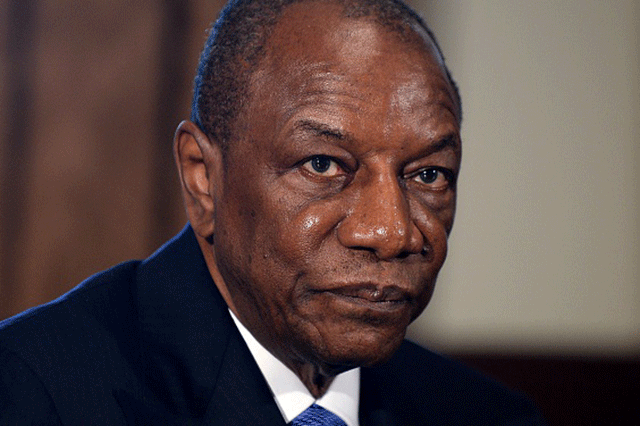Conakry – Guinea has opened a judicial investigation into ex-president Alpha Conde and several other former top officials for murder, torture, kidnappings, looting and rapes.
Prosecutors in a suburb of the capital Conakry announced this in a statement dated May 6 which was received by AFP on Thursday.
The alleged acts were committed in the run-up to a controversial referendum on constitutional change allowing Conde a third term and contested elections in March 2020 that he claimed he had won.
Conde, today aged 84, was ousted by mutinous soldiers in September last year amid anger at his successful bid for a third term.
The others targeted with Conde are his former prime minister Ibrahima Kassory Fofana, ex-defence minister Mohamed Diane and “several others”, the statement said.
ALSO READ | Guinea opposition condemns 39-month move to civilian rule
In 2010, Conde became the first democratically elected president in the history of the West African country.
But his popularity dived in his second term as critics accused him of authoritarianism, and opposition protests were violently repressed. Dozens died, the overwhelming majority of them civilians.
Conde’s future became a major issue between the junta and the Economic Community of West African States (ECOWAS) regional bloc after the coup.
He was initially detained and then allowed to go to the United Arab Emirates for medical treatment in January, returning home on April 10.
On April 22, the junta declared it was informing “national and international opinion that the former president of the republic is finally free” – an assertion contested by Conde’s Rally of the Guinean People (RPG) party.
ALSO READ | Alpha Conde’s party ends participation in Guinea reconciliation talks
Guinea’s legislative body on Wednesday announced a three-year transition period before civilian rule is restored, defying ECOWAS which has called for a swifter timetable.
Guinea has seen its membership suspended by ECOWAS.
UN chief Antonio Guterres this month also called for the military juntas in Burkina Faso, Guinea and Mali to hand power back to civilians as soon as possible.
Mineral-rich but deeply poor and saddled with a reputation for corruption, Guinea has had few periods of stability since gaining independence from France in 1958.
Many Guineans initially welcomed the coup but there is growing discontent in the nation of 13 million people.
Follow African Insider on Facebook, Twitter, and Instagram
Picture: Getty Images
Source: AFP
For more African news, visit Africaninsider.com


